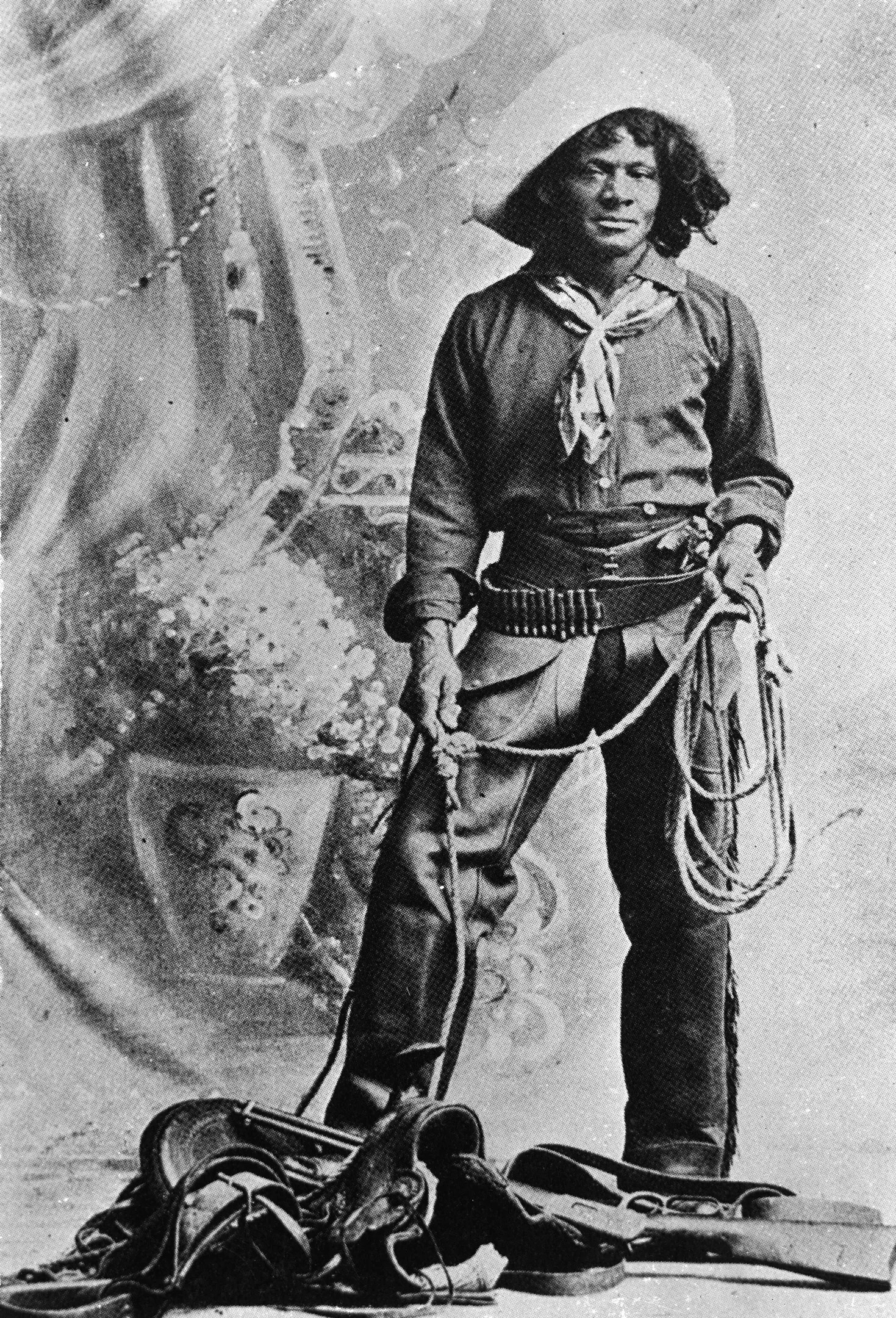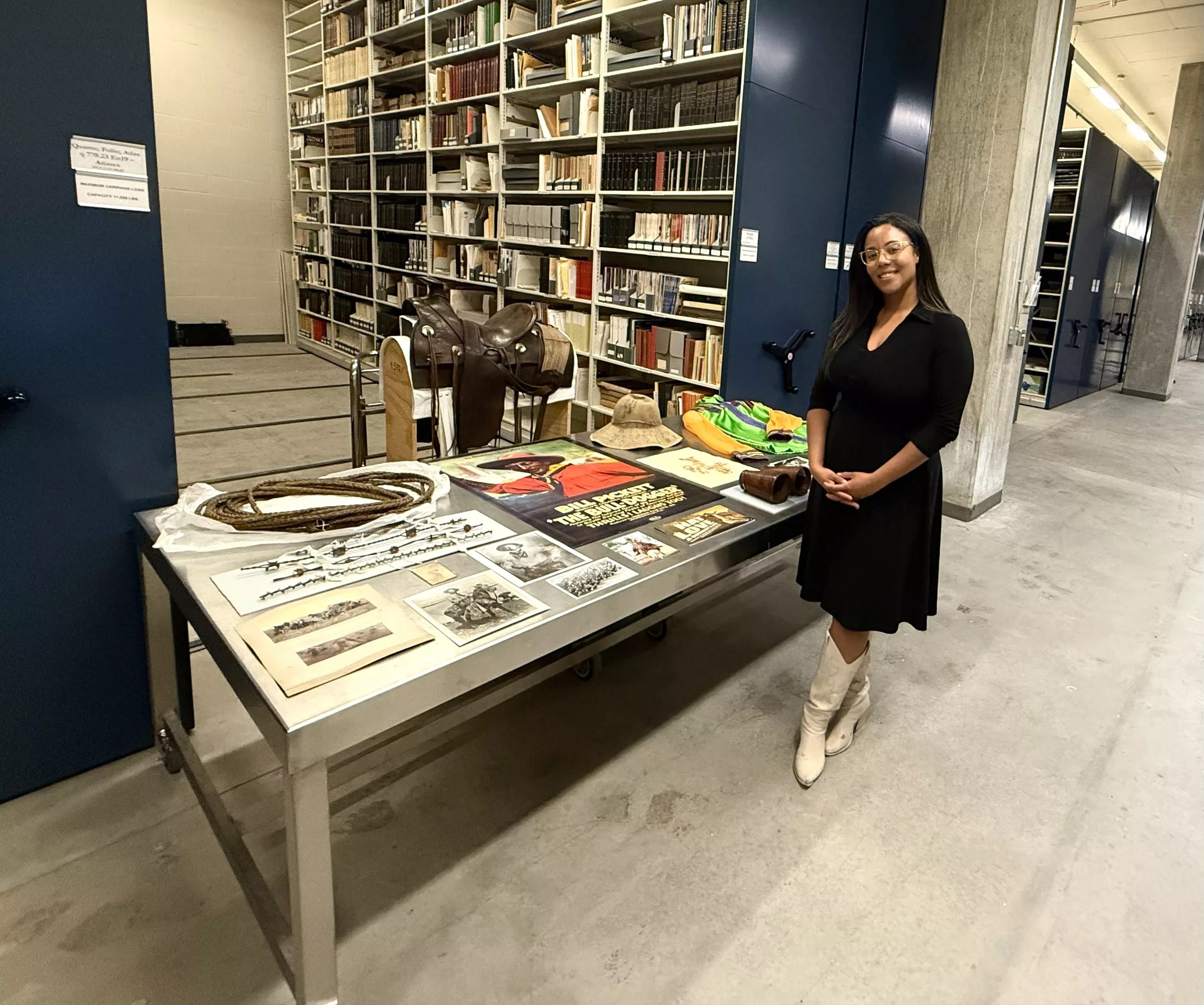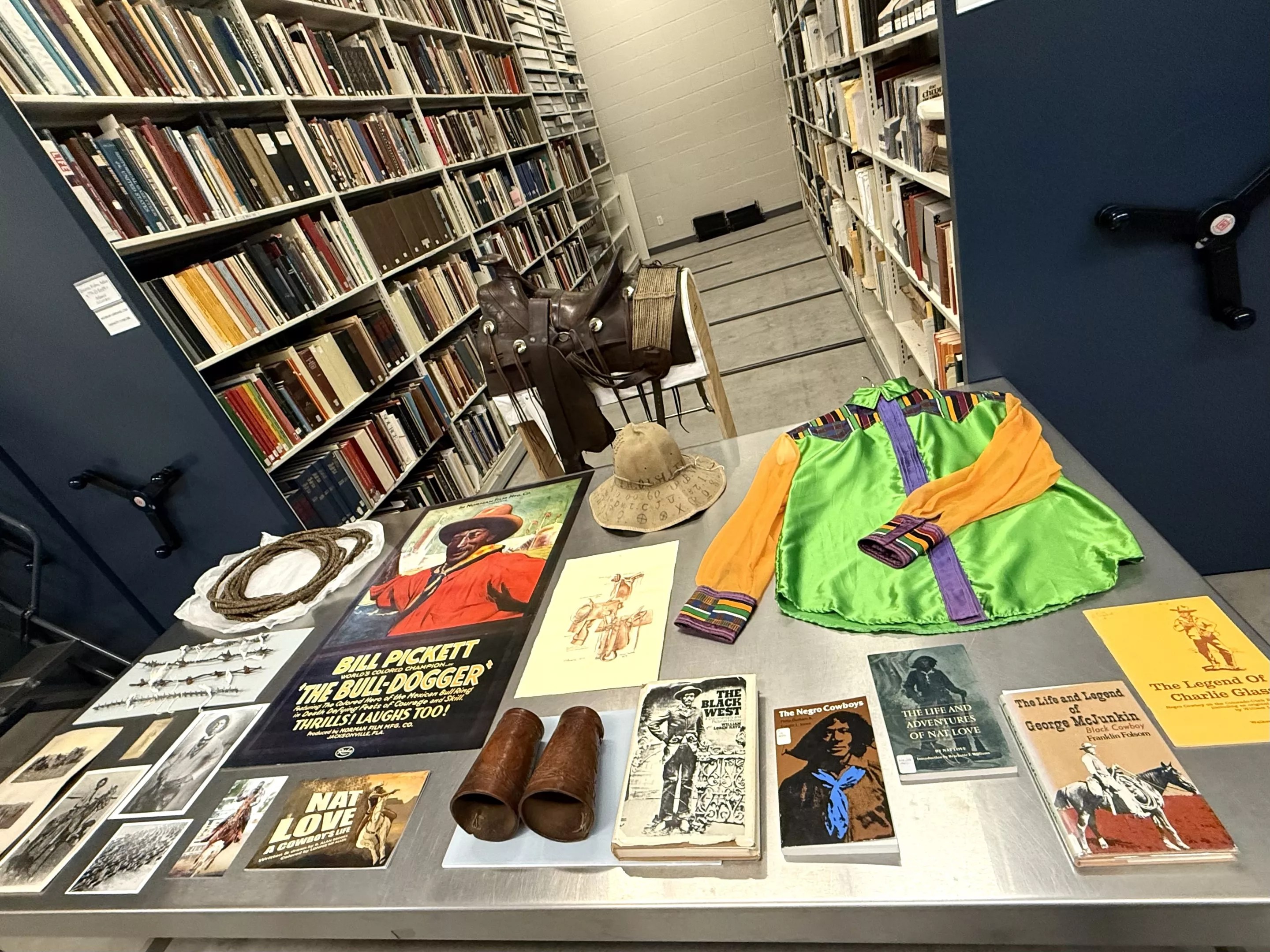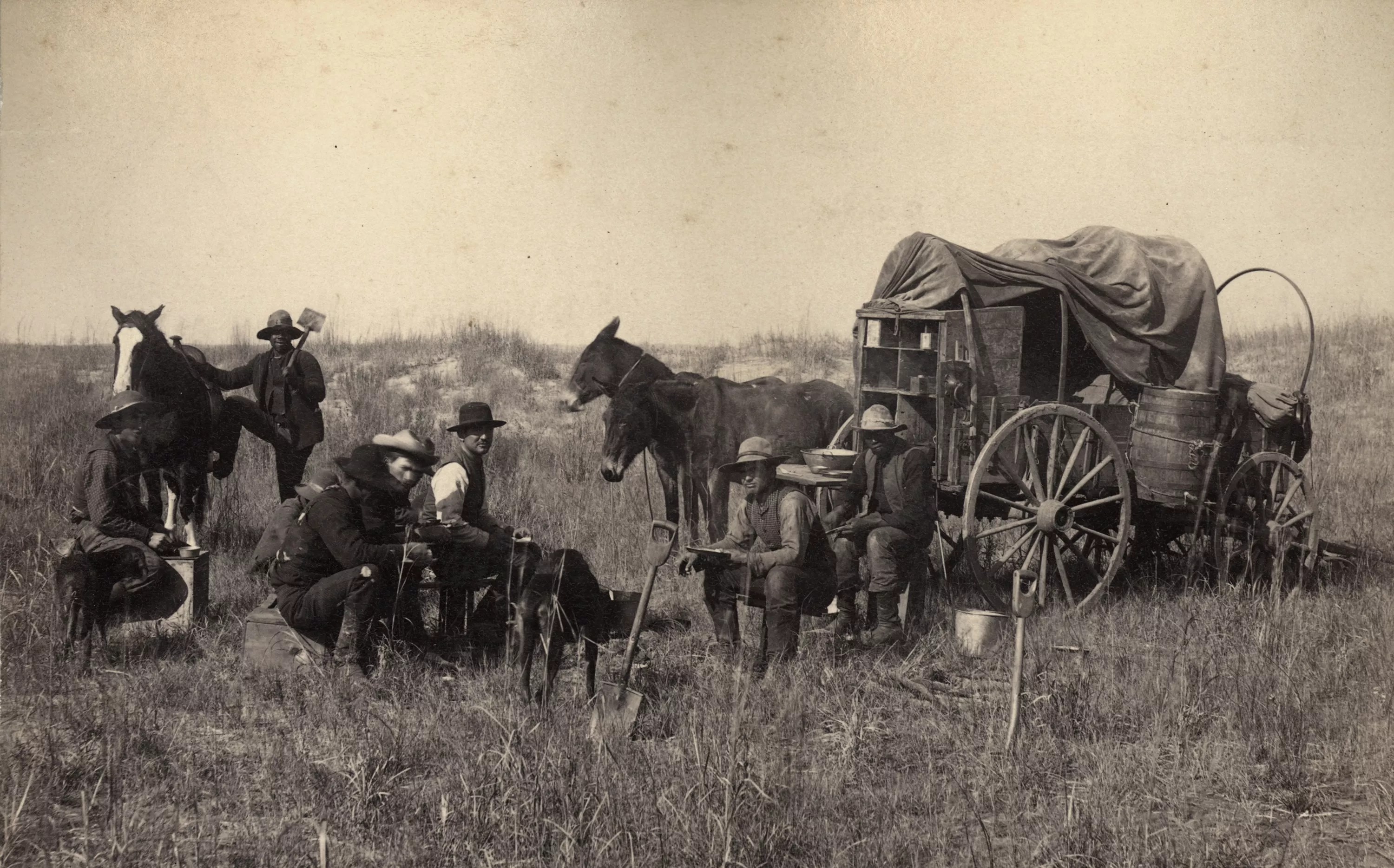
History Colorado

Audio By Carbonatix
Denver loves cowboys. You can see it in the rising fashion of cowboy boots, bolo ties and at least one guy wearing a cowboy hat in every public space. When most people think of cowboys, they think of the archetypal figures that were popular in early Western movies, television shows, dime novels and art: White guys.
True cowboy lovers will want the full story.
Recently, History Colorado Curator of Black History Acoma Gaither started noticing Black cowboys popping up in current media, such as Beyonce’s Grammy-winning Cowboy Carter and Lil Nas X’s “Old Town Road.” In music, fashion and media, she saw Black artists working to reclaim their history.
“The usual narrative that folks get in terms of the Great Migration usually is from the South to the North,” Gaither explains. “But there was a huge and early migration out West in the 1870s. There were a lot of Black settlements in the West, and a lot of people don’t recognize it and don’t know that story.”

Acoma Gaither stands next to a table of artifacts she collected for her research on Black cowboys in Colorado history.
Kristen Fiore
So, she started digging through History Colorado’s archives for anything related to Black cowboys and came up with quite a few artifacts, including a colorful cowgirl shirt with traditional African kente cloth sewn around the shoulders and cuffs. When Gaither went through the donation records, she found that the shirt was donated by Lu Vason, creator of the Bill Pickett Invitational Rodeo, the longest-touring African American rodeo in the country.
Gaither kept digging and gathering oral histories, wrote an article for History Colorado, and now will host an event to show off what she found. Part of History Colorado’s Blaxplanation series, “Black Cowboys Unveiled: Meet the Collections and Fireside Chat” is set for Thursday, March 13, at the History Colorado Center.

Come to “Black Cowboys Unveiled” to see the artifacts and photos in person.
Kristen Fiore
At the event, Gaither will be joined by real-life Black cowboy Maurice Wade and illustrator, author and professor R. Alan Brooks. A collection of artifacts will be on display, and Brooks will sign his comic book, Nat Love: A Cowboy’s Life, inspired by the autobiography of Nat Love, a Black cowboy who won a lot of rodeo titles and earned the name Deadwood Dick. After Love retired from the cowboy life, he moved to Denver and became a Pullman porter.l Brooks’ graphic novel, which was a commission for the Denver Art Museum, is based on Love’s autobiography.
Wade is in his mid-seventies and still participates in rodeos; he also shares his roping skills at schools. He grew up riding mules on his grandfather’s property in Mississippi and then served in the Vietnam War. After the war, he ended up in Colorado and on the rodeo scene.
During the “chat” portion of the program, Gaither will talk about other early Black Westerners with Colorado ties, like Willie Kennard, who became Colorado’s first Black town marshal in 1874; Bill Pickett, the first Black cowboy movie star, and George McJunkin, a Black cowboy who came across the Folsom archeological site, a historical discovery that put archeologists’ understanding of humans’ existence in North America back by a thousand years, she says.

“Cattle are seen as a very American type of animal,” Gaither says. “It’s in all the cowboy lore, deeply entrenched in Western history, but they’re a relatively new animal in America. Research indicated that cattle were transported from Africa.”
History Colorado
Gaither will also share more discoveries from her research, including finding archival records that show early slave traders targeted African tribes familiar with cattle herding. “Cattle are seen as a very American type of animal,” Gaither notes. “It’s in all the cowboy lore, deeply entrenched in Western history, but they’re a relatively new animal in America. Research indicated that cattle were transported from Africa.”
Gaither hopes the program will give people a fuller perspective on Western culture. “The true history of the American cowboy has all too often been obscured and veiled from collective memory,” she writes in her History Colorado article. “But the material record tells a different story. Photos and artifacts in the History Colorado collection are indelible reminders that Black people have not always been part of Western stories, but that in many ways, the story of the West is also the story of Black Americans.”
“Black Cowboys Unveiled: Meet the Collections and Fireside Chat,” 6:30 p.m. Thursday, March 13, History Colorado Center, 1200 Broadway; tickets ($15 members, $18 others) are available here.